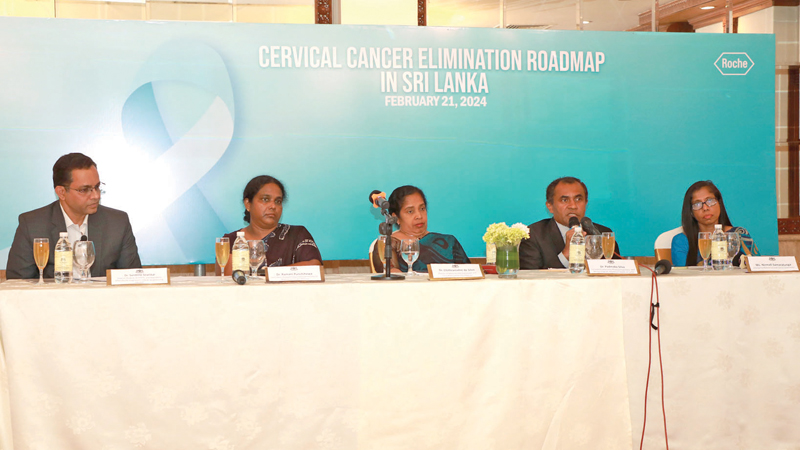 Cervical cancer poses a significant threat to women’s health in Sri Lanka, ranking as the second most common cancer agent among women in the country. With an estimated 1,407 diagnoses and 780 deaths annually, urgent action is imperative to combat this pressing public health concern. Recognising the gravity of the situation, the Ministry of Health has embarked on a multifaceted approach to eliminate cervical cancer nationwide.
Cervical cancer poses a significant threat to women’s health in Sri Lanka, ranking as the second most common cancer agent among women in the country. With an estimated 1,407 diagnoses and 780 deaths annually, urgent action is imperative to combat this pressing public health concern. Recognising the gravity of the situation, the Ministry of Health has embarked on a multifaceted approach to eliminate cervical cancer nationwide.
A recent panel discussion held in Colombo brought together experts and stakeholders to address the challenges and advancements in the fight against cervical cancer.
Among the esteemed panellists were Dr. Chithramalee de Silva, Director of Maternal and Child Health; Dr. Ramani Punchihewa, Consultant Histopathologist; Dr. J Padmaka Silva, National Program Manager for the Well Woman Program; and Nirmali Samaratunga, Chairperson of the Rotary Cervical Cancer Elimination project. The discussion, moderated by Dr. Sandeep Sewlikar of Roche Diagnostics India, shed light on the initiatives undertaken by the Government and collaborating organisations to tackle cervical cancer head-on.
A pivotal initiative highlighted during the discussion was the pilot project conducted in the Kalutara District, showcasing promising results in early detection and lowering cervical cancer rates. The project evaluated various screening methodologies, including Pap smear, Liquid-Based Cytology (LBC), and HPV DNA testing, among ever-married women aged 35 to 45. Findings revealed that HPV DNA screening exhibited a higher detection rate of Cervical Intraepithelial Neoplasia (CIN) compared to other methods, reinforcing the effectiveness of HPV-based screening in early detection.
Building upon these findings, the panel emphasised the World Health Organization’s (WHO) recommendation of implementing HPV DNA-based screening as the primary method, commencing at age 30 with regular testing intervals of 5-10 years.
Dr. Chithramalee de Silva underscored the government’s commitment to introducing HPV DNA-based screening gradually across the country, aligning with global best practices. Dr. Padmaka Silva elucidated the three pillars essential for cervical cancer elimination: vaccination, screening, and treatment. Efforts are under way to vaccinate girls under 15 years old, expand screening programs through the network of 1,000 clinics, and improve access to treatment, which remains a work in progress.
Nirmali Samaratunga drew parallels between the cervical cancer elimination program and the successful eradication of polio, highlighting the importance of collective efforts and community engagement in achieving ambitious health goals.
The panel emphasised the pivotal role of proactive initiatives, policy advocacy, and community awareness in driving cervical cancer elimination in Sri Lanka. With a concerted effort from the Government, healthcare professionals, and civil society, Sri Lanka aims to make significant strides towards eradicating cervical cancer and ensuring the well-being of its women.
Dr. Punchihewa said the importance of preventive measures, highlighting that screening is superior to treatment, as it prevents cancer before it develops.
Given the high cost associated with cancer treatment, early detection through screening is paramount in saving lives and reducing the burden of cervical cancer on individuals and healthcare systems alike.









